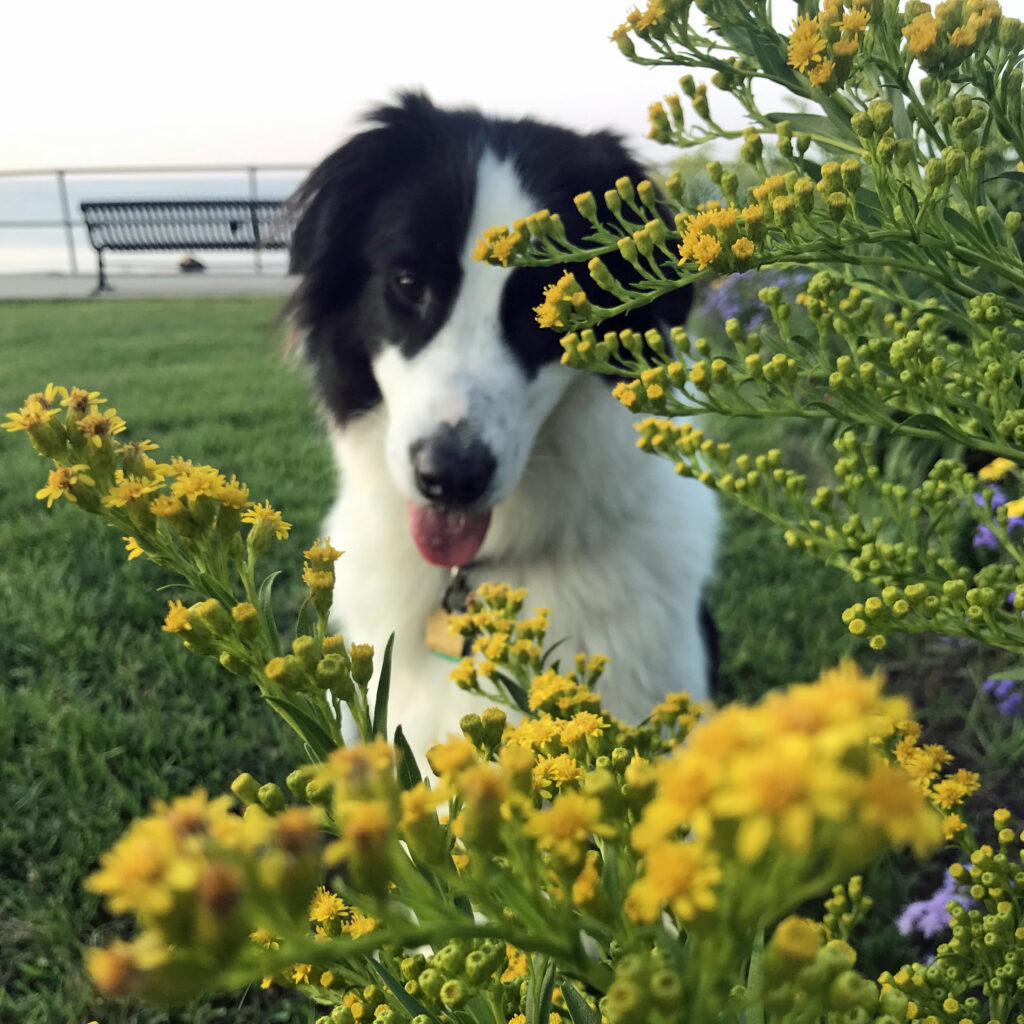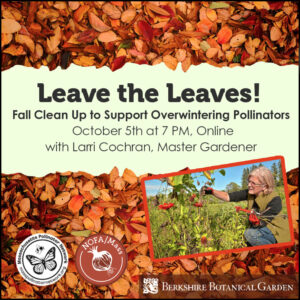
My favorite things include my pup, Harper, native seaside goldenrod for pollinators, and Rockport, MA, shown here at the park above Old Garden Beach in Rockport. Sorry, Harper, the goldenrod is in focus and your are a prop. Good boy!
Join me in attracting butterflies, birds and native bees to your garden:
Top 5 reasons to include goldenrod in your butterfly garden:
- 125 species of butterflies and moths lay their eggs on goldenrod in eastern MA, more than any other herbaceous perennial, and if you want to have butterflies, you must welcome their caterpillars and provide them something very specific to eat as soon as their eggs hatch. The female adult butterflies lay their eggs on the plants that they know will feed their young.
- Many people think native plants like goldenrod will take over a garden, but some species of goldenrod are well-behaved clumping varieties that do not spread into colonies.
- Adult butterflies depend on nectar from late summer and fall blooming plants to provide nectar for food, and goldenrods are nectar-rich and have a long bloom period. This includes migrating species like the popular monarch, Danaus plexippus, in the Nymphalidae family.
- Native bees also need pollen for food, and goldenrods are an ideal source late in the growing season.
- The more caterpillars and adult butterflies you have, the more birds you’ll have, and the more diverse will be the wildlife in your garden.
- BONUS: Ragweed, rather than goldenrod, is the major culprit of seasonal fall allergies. Ragweed is wind-pollinated, and plants that are wind-pollinated make way more pollen than animal-pollinated plants. Butterflies, moths, bees, and birds are some of the animals that pollinate plants.
Thank you for reading this, and happy habitat gardening!
Please follow and like us:


